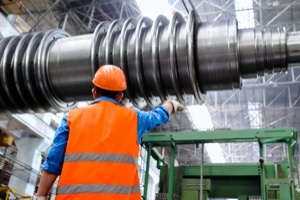
Maintenance workers perform physically demanding and labor intensive jobs that require the ability to frequently lift heavy equipment, manually move equipment and tools, stand for long periods, bend/twist/kneel/stoop often throughout the day, climb ladders, use their hands for repairing or installing equipment or fixtures, and perform timely repairs.
According to the Dictionary of Occupational Titles, maintenance workers should be able to inspect machinery, dismantle and reassemble equipment, perform installation tasks, maintain records of maintenance, and use a variety of tools that could include hazardous equipment, handheld power tools, torches, and welding devices. It is important that maintenance workers have the ability to perform the duties safely. Some maintenance workers have additional supervisory responsibilities. The positions are typically classified as being at least “medium” in nature, requiring maintenance workers to exert 20 to 50 pounds occasionally.
In our experience, common medical conditions suffered by maintenance workers include conditions related to the physical exertion that is placed on their bodies, such as:
 Kentucky ERISA Disability & Life Insurance Claim Lawyers
Kentucky ERISA Disability & Life Insurance Claim Lawyers



